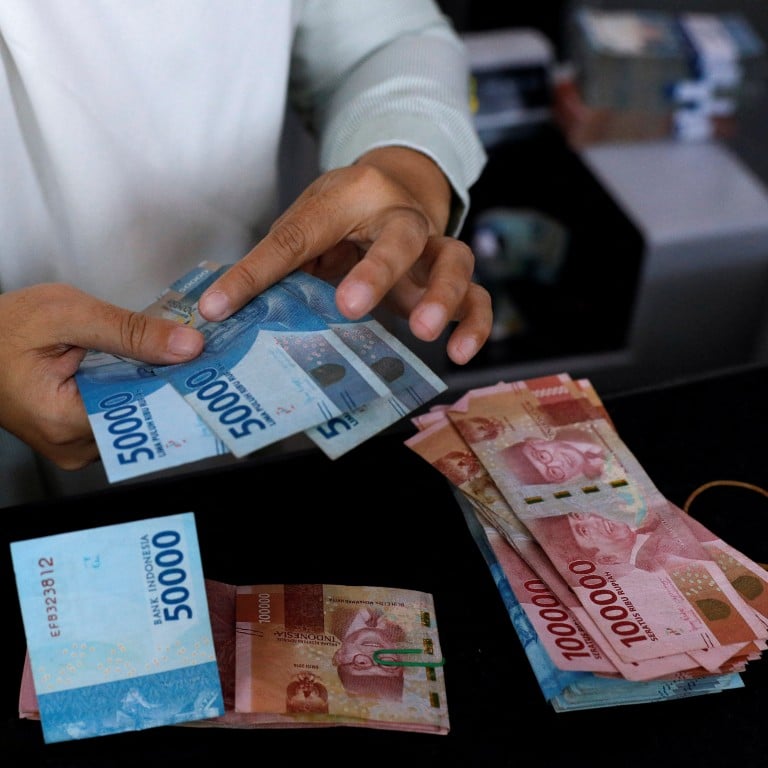
Over 1,000 Indonesian students may have fallen prey to bogus internships in Germany
- The victims were promised high salaries and study credits but they were paid much less after arriving in Germany
- Investigators are questioning five suspects including an Indonesian academic for their alleged roles in the scam
Some 1,047 students from 33 universities across Indonesia are suspected to have fallen victim to the scam, Indonesia’s national police said last week.
Two Indonesia-based recruitment agencies and two German ones were said to have promised easy, high-paying jobs to students through a three-month internship programme in Germany called ferien jobs, which could later be converted into 20 credits for the students.
The agencies claimed the ferien job scheme was part of the Indonesian education ministry’s Independent Learning Independent Campus programme, or MBKM, which allows university students to take courses and carry out activities outside their studies for two semesters. The education ministry confirmed in October that the internship was not part of the MBKM programme.
Indonesian indigenous villagers face eviction threat over new capital project
“Students are employed non-procedurally, resulting in being exploited,” Brigadier General Djuhandhani Rahardjo Puro, director of the general crimes unit at the Indonesian national police, told reporters on March 20.
Police have named five suspects in the case, including an economics professor at the University of Jambi on Sumatra island, whose 87 students were allegedly scammed by the programme.
Hadi Tjahjanto, coordinating minister for political, legal, and security affairs, said on Wednesday he would form a “special team” to investigate the bogus internship, adding he had urged universities to resolve the problem.
‘I did not have any option’
“If I could turn back time, maybe I wouldn’t go [to Germany],” said Budi, one of the victims from the University of Jambi who spoke to This Week in Asia under the condition of anonymity.
From mid-October to the end of December, Budi worked in an international cargo company’s freight facility in Bremen, where he was paid €13 per hour. His main job was to sort out “heavy packages, ranging between 30-40kg each, directly from container boxes”. According to Budi, he was not given time to study and translate the German-language contract.
“But since I was already in Germany, I immediately signed it, I did not have any option,” he said.
Prabowo’s election opens a new chapter in ties with China
Budi, who studies information and technology at the university, said he suffered bruised limbs and back pain from the job.
Zubaidah, director at Beranda Perempuan, a migrant workers’ rights group based in Jambi, said the bogus programme highlighted a global trend where human trafficking rings are increasingly targeting students.
“There is a phenomenon of increased unemployment among productive ages. Having a bachelor’s degree does not guarantee that they can get a relatively high salary. It is not easy to find work … That’s also the driving factor why [the scheme] targets students.”
According to data from the statistics agency, university graduates made up 5.11 per cent of 7.86 million unemployed people as of last August.
Budi first heard about ferien jobs in May last year, when he saw pamphlets about the programme on campus.
“It claimed that if we join, we could get 20 credits and a monthly salary between 20-30 million rupiah [US$1,259-US$1,889] and other benefits so I was interested,” the 21-year-old said.
Budi noticed the first anomaly during the internal selection at his university in May when all 400 applicants were accepted. The selection consisted of psychology and English language tests but the latter was “only a basic English test, not as hard as TOEFL,” he said, referring to the Test of English as a Foreign Language, a standard English proficiency test.
The second red flag was raised by the Jambi immigration office, which suspected Budi’s paid internship in Germany was a full-time job. To ensure extra protection, the office asked Budi to enclose a letter of recommendation from the Indonesian labour agency. Overall, it took Budi one month to finally secure his first passport, three weeks longer than the normal processing time.
To get a work visa, Budi had to pay in total 15 million rupiah (US$945) to get the necessary documents, including €350 for the recruitment agency to obtain a German-issued working permit and a letter of acceptance from his future employer.
“My parents had to borrow money from their siblings. I assured my parents that I will pay the debt with my salaries when I return home,” Budi said.
His parents were also sceptical of the internship as Budi had to pay for everything on his own. He was initially informed by recruiters that the university and the agencies would foot the bill.
Who is Truong My Lan? From market stall to Vietnam’s biggest fraud case
“But I was thinking, when will there be another overseas internship programme? The agent said that this is an easy job, even kindergarten children can do it,” Budi said.
Budi is also in debt with an Indonesian employment agency called SHB, which bought his return flight tickets for 24.8 million rupiah, nearly twice as much as the route’s normal price. The agency claimed that the tickets would include pick-up and transport service from the Dusseldorf airport to Bremen. “But nobody picked us up, we were stranded at the airport all day,” Budi said.
The agency charged a monthly rent of €600 for Budi’s one-room flat in Bremen, which he said was double the normal price. For three months he worked in Germany, he was only paid 16 million rupiah in total (US$1,006) – much lower than the promised 90 million rupiah – with much of his wages going to the agencies to pay for Budi’s living expenses such as for lodging and transport.
When he was in Germany, Budi said that he did not reveal his problems to his parents out of “shame”, and he did not want them to worry.
Currently, Budi estimates that he still has a debt of 40 million rupiah.
“I feel disadvantaged by taking part in this programme. At first, I had no debt, now I have tens of millions in debt,” he said.


